
1959… 1974… 1978…
Did you ever hear the one about the optimist? It dates back to the 1920s, although it usually told these days using the Empire State Building as a backdrop (although the ESB was not completed until 1931).
Guy jumps of the roof of a tall building. Half-way down, he passes by a window and is overheard saying “So far, so good.”
I have another way of looking at that story, and it is tied to why I adopted my tag line: Vaille Que Vaille Lors se Verra. You can find out more about the origins of this saying under its own menu heading (not that there is that much to know).
I am not that sure that the jumper in this story was an optimist. I think he was a realist, and possibly an existentialist. We are all jumping off a building, and ultimately our destination is the same as the jumper’s: splat. After all, no one gets out alive.
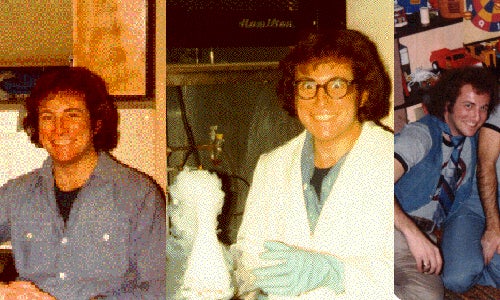
1979… 1979…1979…
What appeals to me about “Vaille que vaille…” is the reminder I get from its translation, typed neatly on the museum wall next to a medieval tapestry: “One goes as one goes, then one shall see.”
It is tempting to make plans for what is going to happen to you in any given situation and try to figure out in advance how something is going to work out. Indeed, according to evolutionary biologist Dick Alexander, imagining as many scenarios as possible in advance may be a key feature of what gave the human brain its evolutionary advantage – after all, if you can conceptualize and communicate a danger, or a source of food, or a place of safety, you can avoid it, eat it, live in it, and you can survive, and pass this trait on. Alexander calls this “anticipatory scenario building.” He argues that this is what wins court cases, too.
As advantageous as this scenario building is, and I believe it is, it can also lead people to a form of paralysis, when they recognize the implicit uncertainty in the outcome of any given situation and so they become afraid to begin, or move into situations with big, lingering unknowns or uncertainties.
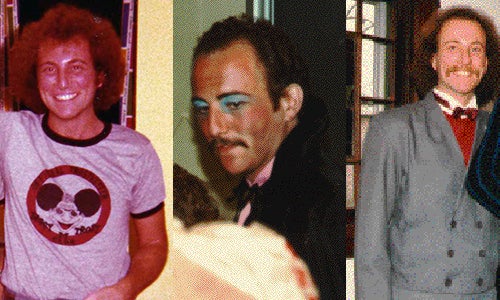
1980… 1983… 1984…
And it seems to me that you just need to take the first steps and rely on your skills to deal with what you are dealt, make the best of it, and keep re-assessing things in the light of the new information you could not possibly have until you start moving. The way you thought you were going to get from point A to point B always needs to be re-evaluated based on new information, and you might learn that point C is really the better option.
The alternative makes no sense, because if you believe you can suss things out completely, to the point where you are not going to have to change your mind about something important, then you are (by definition) right about everything. And if you believe that you are an idiot.
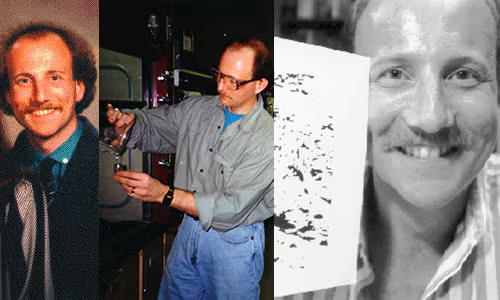
1990… 1991… 1994…
In chemistry, we talk about not confusing thermodynamics (the relationship between the starting point and the ending point) with the kinetics (the pathway and rate of how you get there). This is a sensible philosophy. The futurist Paul Sappho is noted for reminding people to not confuse a clear view with a short path.
So, “one goes as one goes…” — consider the options, make a plan, and start to move — “…and then one shall see.” — once you start moving, then what do you know now, precisely because you started moving, that you did not know before, and how does it affect your plan? How will you change your mind about something important?
It might be clear what the guaranteed outcome is when I step off the ledge on the 135th floor (and ultimately, that is true – splat), but it is not altogether clear, along the way, what is going to happen along the way, and what I might accomplish along the way. I might well want to know what is going to happen as I pass the 1st floor while I am standing on the ledge, but what if I cannot really know what my options really are until I am passing the 70th floor? I will simply never know until I take the step; and I will not be able to know until I take the step.
One goes as one goes, and then one shall see.
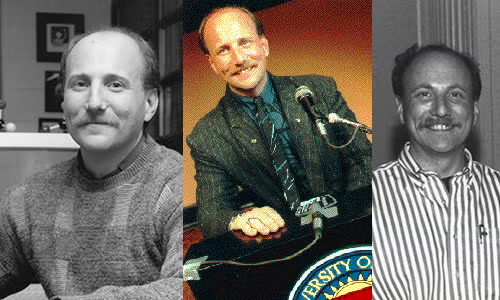
1994… 1994… 1995…
One last note, in case you are not thinking metaphorically enough, yet. “Vaille que vaille…” applies to every project you have done, and perhaps to every relationship you have ever had, where someone says to you “well, that ain’t ever going to fly… why are you wasting your time?”
When you want to do something that is deemed by others to have a certain outcome that differs from their world view, you encounter the two most common enemies to progress: the discouragers (why would you want to step off in that direction, don’t you know you will never make it?) and the adversaries who will actively block your efforts for whatever reasons they might be motivated to do so, particularly if they think you threaten their own world view. Evolutionary biologist Geoffrey Miller reminds us that being unpredictable is an exceptional advantage to survival. If you are in a predator/prey situation, and you are the prey, then predictability means that you end up being dinner.
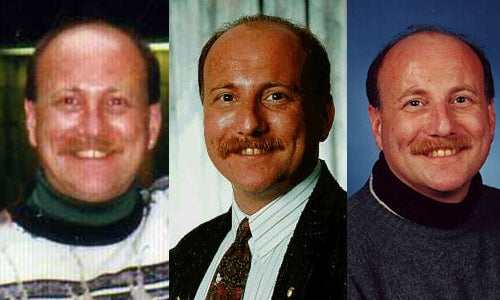
1996… 1997… 1997…
When jackrabbits are being chased, their pathway is intrinsically chaotic, that is, unpredictable, which turns out to have been a survival trait. When moths encounter the sonar from a bat, they drop into a chaotic fall. When you forecast too much detail about what you are going to be doing, those who might want to have you for dinner will be laying traps, blocking the path, and waiting around the corner with knife, fork and napkin. Did you ever see the 2001 musical “Urinetown”? One of the great numbers in there is “Don’t be the bunny.”
A little bunny in the meadow
Is nibbling grass without a care
He’s so delightful as he hops for you!
You say, “Hi, bunny”
And he stops for you
You pull your trigger
And he drops for you
Goodbye, bunny-boo
Hello, rabbit stew!
Don’t be the bunny
Don’t be the stew
Don’t be the dinner
You have better things to do

2001… 2002… 2002…
Which gets me to the last lesson I associate with “Vaille que vaille…” – As one goes as one goes, one might not always want to go with flair and notice, as it could paint a big old target on your head. Take the flag you want to plant at the summit and tuck it into your back pocket, travel the backside of the mountain and actually get to the top before you declare victory. Too many people, I think, declare victory too early on how something is going to be, how it is going to work, or what is going to happen, long before any actual information is known.
This lesson is the “then” in the saying:
One goes as one goes, then (and only then) one shall see.
And that’s what I have to say about my biography. Did you really think you were going to read my “I was born in a log cabin…” narrative?
Please. I mean: PUH-lease!

2003… 2003… 2003…
Those stories usually tell you so little about a person. You can learn a whole lot more about me from the story about why I cling to “Vaille que vaille…” than you ever would have learned in a recitation of my linear history, and, besides, didn’t I just say that the unexpected is a key way to get you from Point A to Point B?

2009… 2013… 2016…
 2018… 2017… 2018…
2018… 2017… 2018…

2019… 2020… 2021

